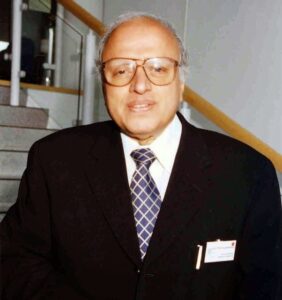Discover the life and legacy of Dr. M.S. Swaminathan, the visionary scientist behind India’s Green Revolution. Learn how his innovations in agriculture ensured food security, empowered farmers, and earned him the Bharat Ratna.

Dr. Mankombu Sambasivan Swaminathan, fondly remembered as M.S. Swaminathan, was more than a scientist—he was a revolutionary whose work reshaped India’s agricultural destiny. As the driving force behind the Green Revolution, he transformed India from a nation plagued by food shortages into a self-reliant agricultural powerhouse. His relentless pursuit of food security earned him the Bharat Ratna in 2024, cementing his legacy as one of India’s greatest visionaries.
Early Life and Education
Born on August 7, 1925, in Kumbakonam, Tamil Nadu, Swaminathan’s fascination with agriculture began early. After excelling in agricultural sciences, he earned a Ph.D. in genetics, equipping himself with the knowledge to tackle one of India’s most pressing challenges: hunger. His research was not just academic—it was a mission to ensure no Indian would ever go hungry again.
The Green Revolution: India’s Agricultural Renaissance
The 1960s were a period of crisis for India, with frequent famines and dependence on food imports threatening the nation’s survival. Swaminathan, alongside Nobel laureate Dr. Norman Borlaug, introduced high-yielding varieties (HYVs) of wheat and rice. These innovations revolutionized farming, tripling crop yields and turning India into a food-surplus nation. The Green Revolution didn’t just avert famine—it empowered millions of farmers, revitalized rural economies, and secured India’s future.
Pillars of His Legacy
- Scientific Innovation
- Developed drought-resistant and high-yield crops, ensuring stable food production even in challenging conditions.
- Sustainability Advocate
- Championed eco-friendly farming, emphasizing soil health, water conservation, and biodiversity long before sustainability became a global priority.
- Institution Builder
- Established premier research institutes like the International Rice Research Institute (IRRI), fostering agricultural innovation worldwide.
- Policy Architect
- Advised governments on farmer-centric policies, ensuring agriculture remained at the heart of India’s development strategy.
Awards and Honors
Swaminathan’s unparalleled contributions earned him accolades across the globe, including:
- Bharat Ratna (2024) – India’s highest civilian honor.
- World Food Prize (1987) – The “Nobel of Agriculture.”
- Padma Vibhushan – For exceptional service to the nation.
- Ramon Magsaysay Award – Celebrating his leadership in agricultural reform.
A Legacy That Endures
Swaminathan’s foresight extended beyond his lifetime. He warned of climate change’s impact on agriculture and advocated for climate-smart farming—a vision now critical in our fight against global warming. His belief in “evergreen revolution”—sustainable productivity without ecological harm—remains a guiding principle for future generations.
Conclusion
M.S. Swaminathan was a rare blend of scientist, humanitarian, and nation-builder. His work didn’t just fill granaries—it saved lives, empowered farmers, and secured India’s place as an agricultural leader. As we face new challenges like climate change and food insecurity, his legacy reminds us that innovation, when rooted in empathy, can change the world.

